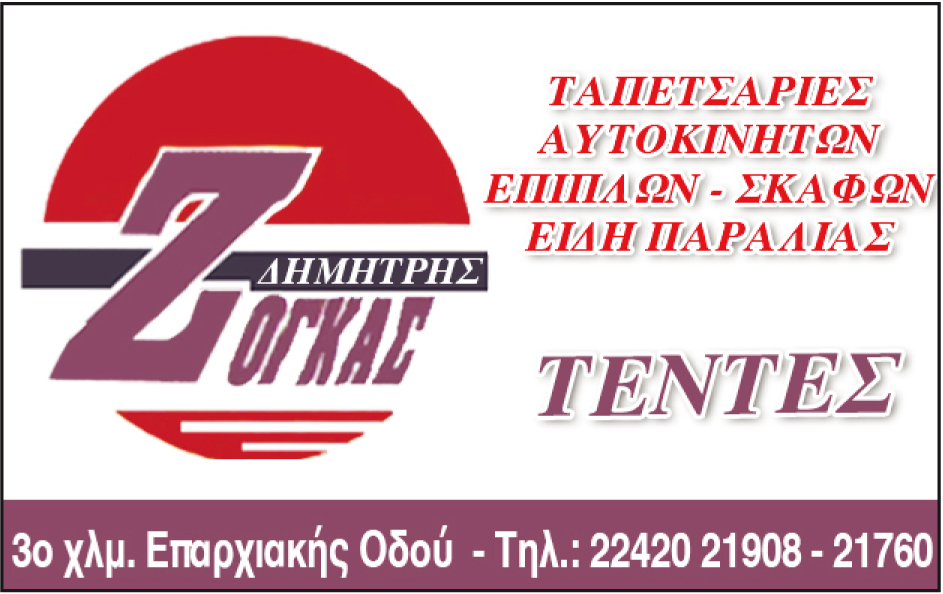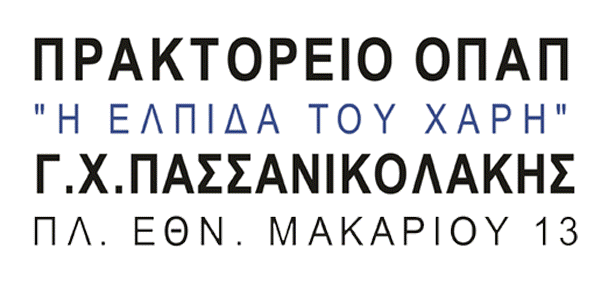Για την παγκόσμια επίδραση της ελληνικής γλώσσας είναι γνωστοί οι περίφημοι λόγοι του καθηγητή οικονομολόγου Ξενοφών Ζολώτα στην Ουάσινγκτον το 1957 και 1959.
Δεν ήταν όμως μόνο ο Ξενοφών Ζολώτας που το τόλμησε. Ένας ακόμη Έλληνας, ο πρύτανης του Παν/μίου του Σικάγο Γιάννης Καλαράς, έδωσε διάλεξη στο Παν/μιο του Σικάγο το 1998 με τίτλο «The significance and influence of the hellenic language» (Η σπουδαιότητα και η επίδραση της ελληνικής γλώσσας) ακολουθώντας το παράδειγμα του Ξ. Ζολώτα.
Με αφορμή, λοιπόν, την παγκόσμια ημέρα της Ελληνικής Γλώσσας (9 Φεβρουαρίου), ο πολύ καλός φίλος και συνεργάτης Θεοδόσης Διακογιάννης, μας έστειλε αποσπάσματα από τις δύο ομιλίες:
Ομιλία Γ. Καλαρά
"The genesis of classical drama was not symptomatic. Aneuphoria of charismatic and talented protagonists showed fantastic scenes of historic episodes. The prologue, the theme and the epilogue, comprised the trilogy of drama while synthesis, analysis and synopsis characterized the phraseology of the text. The syntax and phraseology used by scholars, academicians and philosophers in their rhetoric, had many grammatical idioms and idiosyncrasies. ... The protagonists periodically used pseudonyms. Anonymity was a syndrome that characterized the theatrical atmosphere. The panoramic fantasy, the mystique, the melody, the aesthetics, the use of the cosmetic epithets are characteristics of drama. Even through the theaters were physically gigantic, there was no need for microphones because the architecture and the acoustics would echo isometrically and crystal - clear.
Many epistomologists of physics, aerodynamics, acoustics, electronics, electromagnetics can not analyze - explain the ideal and isometric acoustics of Hellenic theaters even today. There were many categories of drama: classical drama, melodrama, satiric, epic, comedy, etc. The syndrome of xenophobia or dyslexia was overcome by the pathos of the actors who practiced methodically and emphatically. Acrobatics were also euphoric. There was a plethora of anecdotal themes, with which the acrobats would electrify the ecstatic audience with scenes from mythical and historical episodes. Some theatric episodes were characterized as scandalous and blasphemous. Pornography, bigamy, hemophilia, nymphomania, polyandry, polygamy and heterosexuality were dramatized in a pedagogical way so the mysticism about them would not cause phobia or anathema or taken as anomaly but through logic, dialogue and analysis skepticism and the pathetic or cryptic mystery behind them would be dispelled. It is historically and chronologically proven that theater emphasized pedagogy, idealism and harmony. Paradoxically it also energized patriotism a phenomenon that symbolized ethnically character and phenomenal heroism."
Ομιλία Ξ. Ζολώτα
«Kyrie,
It is Zeus' anathema on our epoch and the heresy
of our economic method and policies that we should
agonize the Skylla of nomismatic plethora and
the Charybdis of economic anaemia.
It is not my idiosyncracy to be ironic or sarcastic
but my diagnosis would be that politicians are
rather cryptoplethorists. Although they emphatically
stigmatize nomismatic plethora, they energize
it through their tactics and practices. Our policies
should be based more on economic and less on political
criteria. Our gnomon has to be a metron between
economic strategic and philanthropic scopes.
In an epoch characterized by monopolies, oligopolies,
monopolistic antagonism and polymorphous inelasticities,
our policies have to be more orthological, but
this should not be metamorphosed into plethorophobia,
which is endemic among academic economists.
Nomismatic symmetry should not antagonize economic acme.
A greater harmonization between the practices
of the economic and nomismatic archons is basic.
Parallel to this we have to synchronize and harmonize
more and more our economic and nomismatic policies
panethnically. These scopes are more practicable
now, when the prognostics of the political end
economic barometer are halcyonic.
The history of our didimus organization on this sphere
has been didactic and their gnostic practices
will always be a tonic to the polyonymous and
idiomorphous ethnical economies. The genesis of
the programmed organization will dynamize these
policies.
Therefore, I sympathize, although not without criticism one
or two themes with the apostles and the hierarchy
of our organs in their zeal to program orthodox
economic and nomismatic policies.
I apologize for having tyranized you with my Hellenic
phraseology. In my epilogue I emphasize my eulogy
to the philoxenous aytochtons of this cosmopolitan».
Η AXION HELLAS ΣΤΗΝ ΝΙΣΥΡΟ – 12 & 13 ΜΑΪΟΥ 2025
Με μεγάλη επιτυχία ολοκληρώθηκε η αποστολή της AXION HELLAS στην…..Επίσκεψη του Βουλευτή Δωδεκανήσου της Νέας Δημοκρατίας Βασίλη Α. Υψηλάντη και του Αντιδημάρχου Πολιτικής Προστασίας Κω στον Αρχηγό του Πυροσβεστικού Σώματος
Στο πλαίσιο της διαρκούς δέσμευσης του για την ενίσχυση της…..Έως 31 Μαϊου η προθεσμία εγγραφής στους Δημοτικούς Βρεφονηπιακούς Σταθμούς
Αγαπητοί γονείς, η διαδικασία αιτήσεων για εγγραφές και επανεγγραφές νηπίων…..Μπορούμε να μετακινηθούμε αλλιώς. Ήρθε η ώρα να ξανασκεφτούμε την αστική συγκοινωνία της Κω.
Μπορούμε να μετακινηθούμε αλλιώς. Ήρθε η ώρα να ξανασκεφτούμε την…..Αστήρικτη και συνειδητά παραπλανητική η ανακοίνωση του δικηγόρου Μ. Εκατομμάτη
Ο δικηγόρος κ. Μιχάλης Εκατομμάτης, υποψήφιος στις τελευταίες δημοτικές…..
Η AXION HELLAS ΣΤΗΝ ΝΙΣΥΡΟ – 12 & 13 ΜΑΪΟΥ 2025
Με μεγάλη επιτυχία ολοκληρώθηκε η αποστολή της AXION HELLAS στην Νίσυρο στις 12 και 13 Μαΐου 2025. Η μη κυβερνητική, μη ..Επίσκεψη του Βουλευτή Δωδεκανήσου της Νέας Δημοκρατίας Βασίλη Α. Υψηλάντη και του Αντιδημάρχου Πολιτικής Προστασίας Κω στον Αρχηγό του Πυροσβεστικού Σώματος
Στο πλαίσιο της διαρκούς δέσμευσης του για την ενίσχυση της πολιτικής προστασίας και της ασφάλειας των πολιτών στα ..- ΔΗΜΟΣ ΚΩ
Έως 31 Μαϊου η προθεσμία εγγραφής στους Δημοτικούς Βρεφονηπιακούς Σταθμούς
Αγαπητοί γονείς, η διαδικασία αιτήσεων για εγγραφές και επανεγγραφές νηπίων και βρεφών στους Βρεφονηπιακούς Σταθμού.. - Νίκος . Π. Νασταχανίδης
Μπορούμε να μετακινηθούμε αλλιώς. Ήρθε η ώρα να ξανασκεφτούμε την αστική συγκοινωνία της Κω.
Μπορούμε να μετακινηθούμε αλλιώς. Ήρθε η ώρα να ξανασκεφτούμε την αστική συγκοινωνία της Κω. Τους τελευταίους μήνες, η ε.. - ΔΗΜΟΣ ΚΩ
Αστήρικτη και συνειδητά παραπλανητική η ανακοίνωση του δικηγόρου Μ. Εκατομμάτη
Ο δικηγόρος κ. Μιχάλης Εκατομμάτης, υποψήφιος στις τελευταίες δημοτικές εκλογές με την παράταξη της «Δύναμη .. - Κ. Καϊσερλης π. Δήμαρχος Κω
Κως: Το όραμα και οι στόχοι ενός δημιουργικού λαού μετριούνται δυστυχώς σε γραμμάρια
Κως: Το όραμα και οι στόχοι ενός δημιουργικού λαού μετριούνται δυστυχώς σε γραμμάρια Διθύραμβοι γράφονται στο δελτίο τύπ.. «Έκφραση 97 – Δίνουμε πίσω την εμπιστοσύνη, με πράξεις»
Ο Έκφραση 97 αλλάζει. Δεν ανανεώσαμε μόνο το πρόγραμμα. Αλλά και την πολιτική μας. Με νέα διοίκηση και μια βαθιά κο..Έργο 700.000€ στη ΔΕΥΑ Κω για εκσυγχρονισμό 2300ων μέτρων δικτύου ύδρευσ
Έργο 700.000€ στη ΔΕΥΑΚ για εκσυγχρονισμό 2300 ων μέτρων δικτύου ύδρευσης Δημοπρατείται και ξεκινά στους επόμενου..Πάρκο Κυκλοφοριακής Αγωγής Κω Μια «πονεμένη» ιστορία - Ευτυχώς που υπάρχουν οι σύλλογοι…
Εξηγήσεις τόσο για τον καθαρισμό του Πάρκου Κυκλοφοριακής Αγωγής (κατασκευάστηκε το 2003, επί δημαρχίας Μιλτιάδη Φάκκου ..- ΔΗΜΟΣ ΚΩ
Ιστορική ημέρα για την Κω. Υπογράφηκε η σύμβαση παραχώρησης της παραλίας Ν. Αλικαρνασσού
«Ιστορική ημέρα για το δήμο και τους πολίτες της Κω, αποτελεί η υπογραφή της σύμβασης παραχώρησης στο Δήμο Κω, της παραλ.. Γ.Νικητιάδης : Το νοσοκομείο της Ρόδου καταρρέει και η ΝΔ παρακολουθεί απαθής τις μαζικές παραιτήσεις
Νέα Ερώτηση στη Βουλή προς τον Α. Γεωργιάδη Την πλήρη εγκατάλειψη του νοσοκομείου της Ρόδου που είναι το μεγαλύτερο της ..
ΤΑ ΠΙΟ ΔΗΜΟΦΙΛΗ
LIFESTYLE
- Demi Moore: Ανακηρύχθηκε το πιο όμορφο πρόσωπο από το περιοδικό «People» Lifestyle
- Δικογραφίες σε Ιωάννινα και Κω: Ο Μένιος Φουρθιώτης κατήγγειλε την διάπραξη σοβαρών αδικημάτων εις βάρος του Lifestyle
- Το… απίστευτο ποσό που πήρε ο Τομ Κρουζ για την «μεταφορά» της Ολυμπιακής σημαίας από το Παρίσι στο Λος Άντζελες Lifestyle
- Από την πειρατεία στο Spotify: H ιστορία πίσω από το πώς «απελευθερώθηκε» η μουσική Lifestyle
- ΓΙΑ ΤΑ ΜΠΑΖΑ Lifestyle
ΑΘΛΗΤΙΚΑ
- Ο αθλητισμός είναι ο καλύτερος αμυντικός μηχανισμός στα όποια προβλήματα του ανθρώπου και τα αδιέξοδα της νεολαίας μας Αθλητικά
- Ο Γ.Σ. ΕΥΔΑΜΟΣ Κω διοργανώνει Διασυλλογικό Πρωτάθλημα Στίβου Κ16 Αγοριών – Κοριτσιών την Παρασκευή 2 Μαΐου στο Νέο Στάδιο Ανταγόρας Κω στις 15:30. Αθλητικά
- ΔΕΛΤΙΟ ΤΥΠΟΥ ΕΠΙΤΡΟΠΗΣ ΒΕΤΕΡΑΝΩΝ ΚΩ Αθλητικά
- ΠΡΟΚΗΡΥΞΗ 37ων Πανελληνίων Αγώνων Βετεράνων Αθλητών 3-4 Μαΐου 2025 ΚΩΣ ΝΕΟ ΣΤΆΔΙΟ ΑΝΤΑΓΟΡΑΣ Αθλητικά
- ΑΠΟΤΕΛΕΣΜΑΤΑ ΠΕΡΙΦΕΡΕΙΑΚΟΥ ΠΡΩΤΑΘΛΗΜΑΤΟΣ ΝΟΤΙΟΥ ΑΙΓΑΙΟΥ – Β & Γ ΕΠΙΠΕΔΑ (Ηράκλειο, Κρήτη) Αθλητικά
ΥΓΕΙΑ
- Ξεκινούν πειράματα για την παραγωγή διαστημικών τροφίμων Υγεία
- Υπουργείο Υγείας: Απαγόρευση σε όλες τις αρωματικές ουσίες στα ηλεκτρονικά τσιγάρα Υγεία
- Αρτηριακή πίεση: Το Νο1 τρόφιμο που δεν πρέπει να ξαναφάτε για μην ανεβαίνει Υγεία
- Η υπνηλία συνδέεται με αυξημένους κινδύνους για την υγεία Υγεία
- Τι είναι η κορτιζόλη - Τι να γνωρίζετε για την “ορμόνη του στρες Υγεία
ΜΙΚΡΕΣ ΑΓΓΕΛΙΕΣ
- Το Neptune Luxury Resort στο Μαστιχάρι της Κω, ζητά προσωπικό για την θερινή σαιζόν 2025 Μικρές Αγγελίες
- Ο όμιλος Michelangelo Hotels & Resorts ζητά προσωπικό για τη σεζόν 2025 Μικρές Αγγελίες
- Tο ξενοδοχείο MICHELANGELO RESORT & SPA ζητά για τη σεζόν 2024 ΥΠΑΛΛΗΛΟ ΥΠΟΔΟΧΗΣ Μικρές Αγγελίες
- O όμιλος HotelBrain Group αναζητά Υπάλληλους Υποδοχής - Receptionists Μικρές Αγγελίες
- ΖΗΤΕΊΤΑΙ ΠΡΟΣΩΠΙΚΌ Μικρές Αγγελίες




















